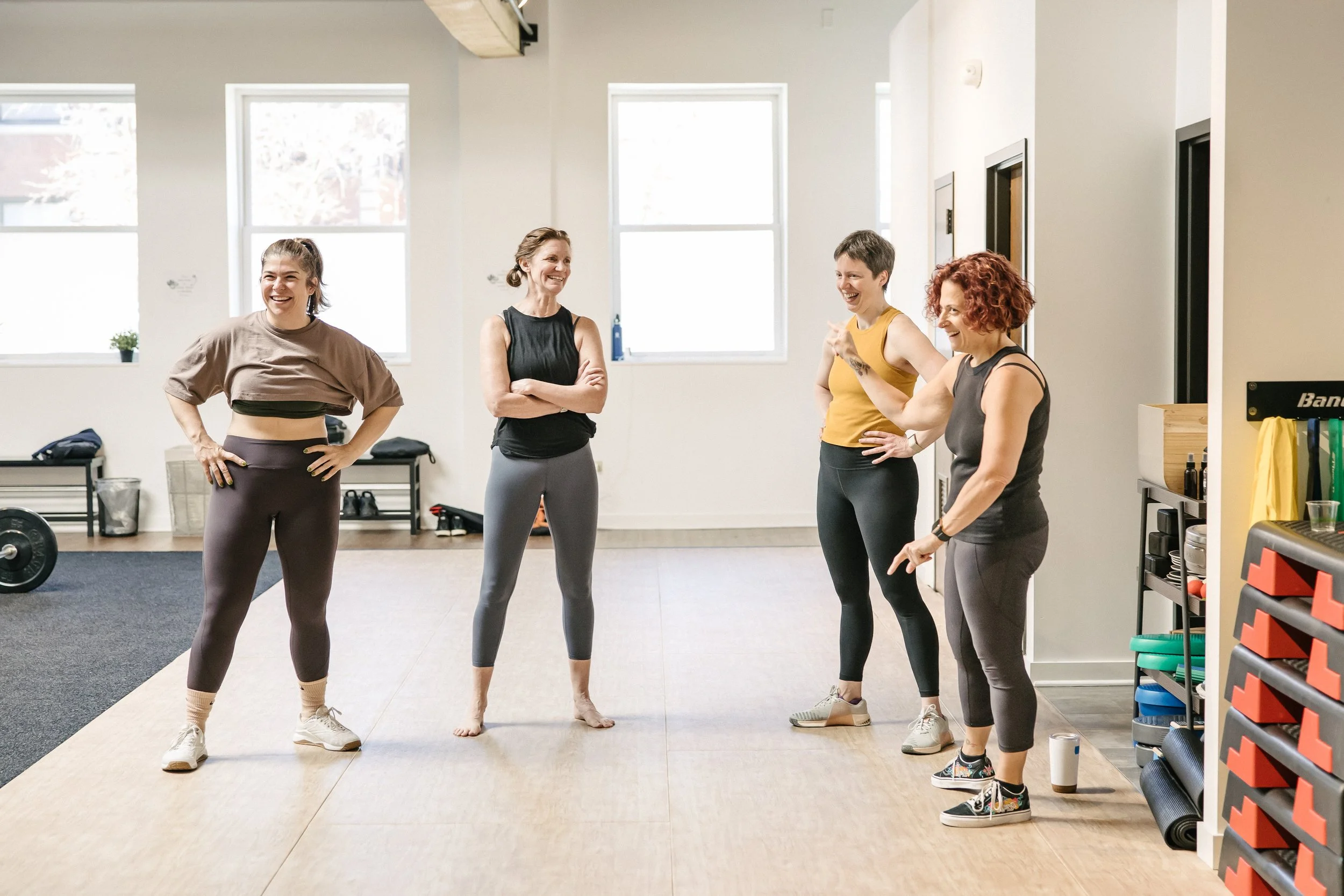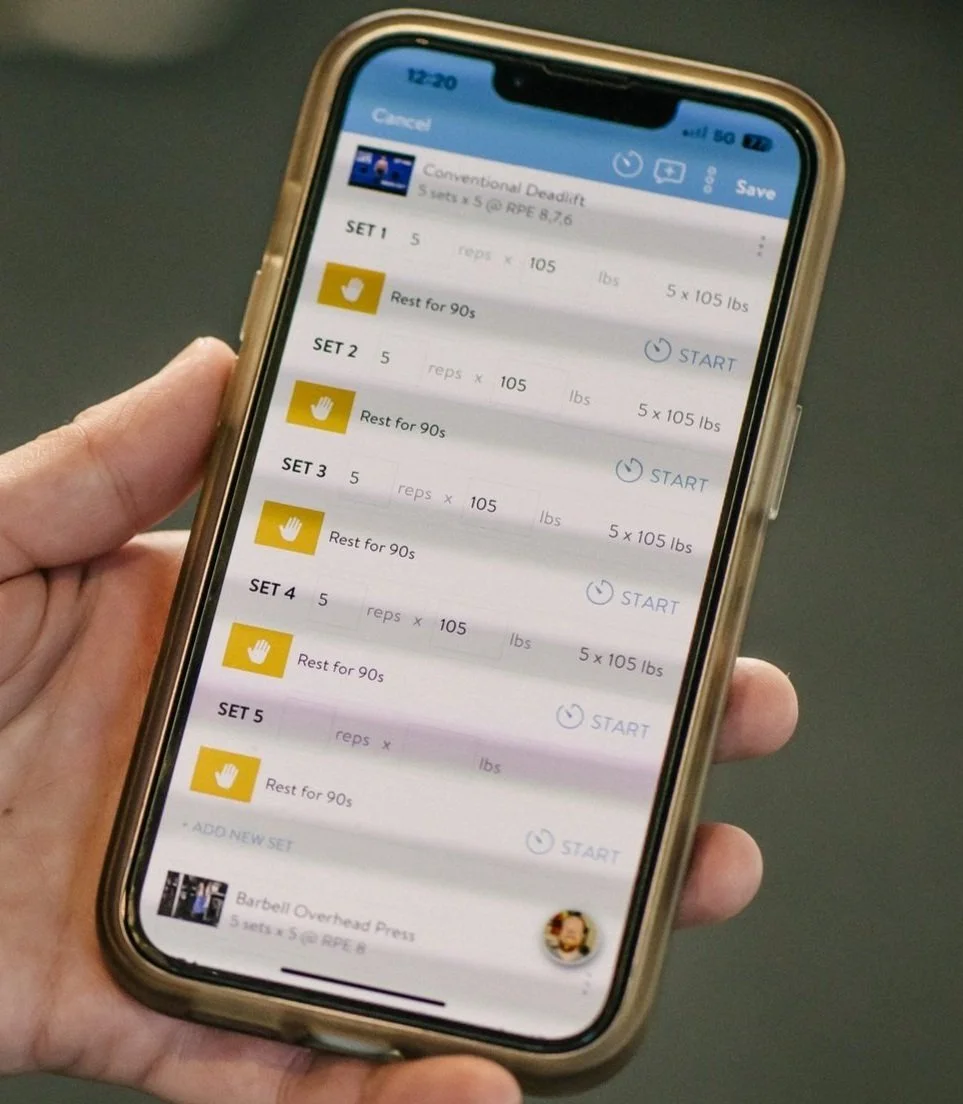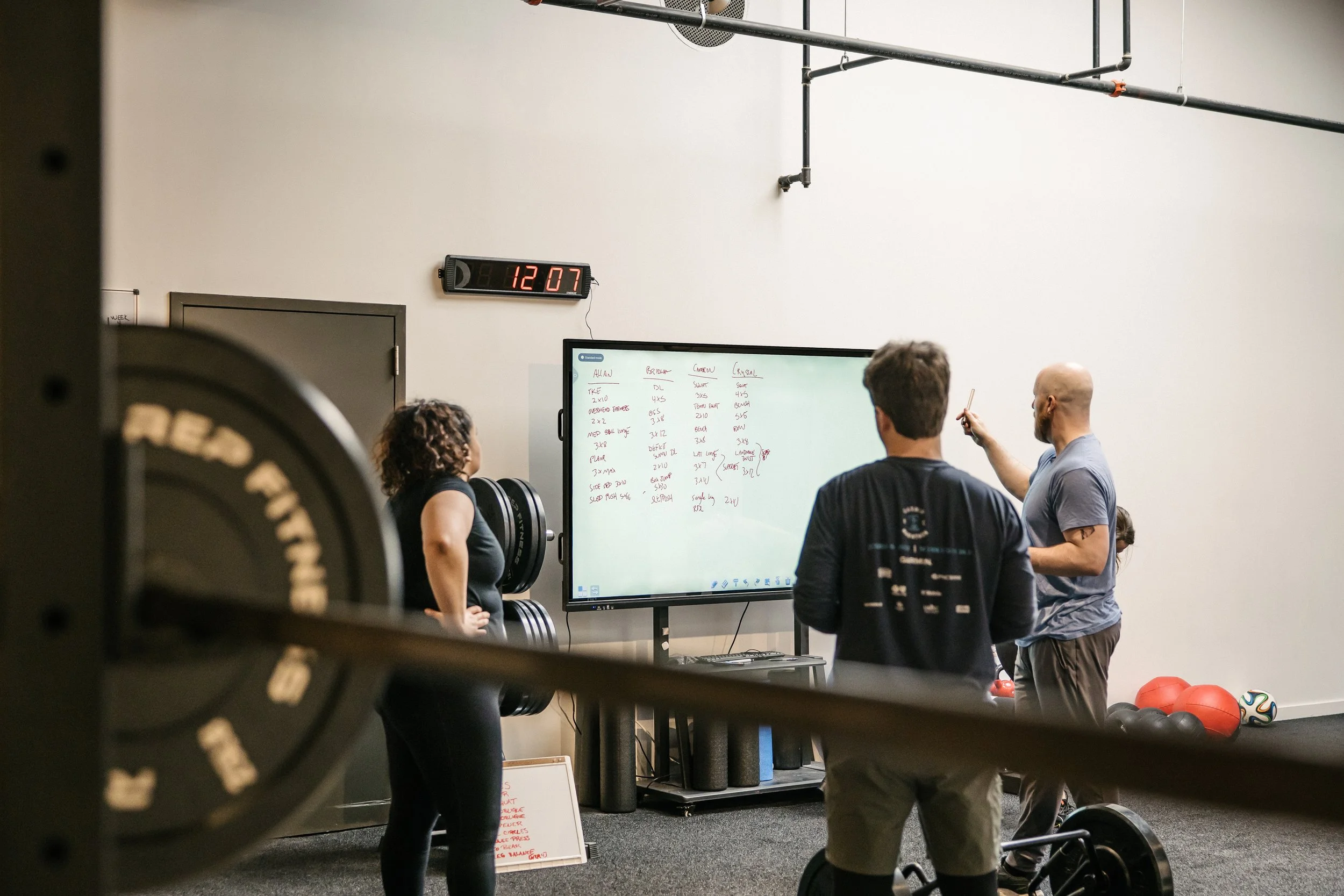The Big Benefits of Small Group Training
Small group programs emphasize community, accountability, and fun.
Finding the right training environment can make all the difference with your fitness goals. Like anything else, the fit between your personality, lifestyle, and training style often sets the stage for consistent progress.
Typically, you’re looking for a plan that eliminates friction and barriers.
Here are some factors to consider.
The answers to these questions will narrow your potential options. (If you’re unsure, reach out to a local coach or personal trainer for a consult. They can often help get you on the right track.)
Interests: Are you the type that likes to move heavy barbells a few times a week in the confines of your dungeon gym? Or do you get excited about the idea of joining friends for a run that ends at a local bar?
Goals: Are you looking to feel better with improved energy levels? Or do you want to set a PR in your sport?
Personality: Are you self-motivated and data-driven in all phases of your life? Do you love to dive into the latest findings on fitness? Or do you perform better with some outside accountability?
Life Phase: Are you enjoying some free time and disposable income? Or are you just making ends meet while raising kids and managing a career?
When Small Group Training Makes Sense
Depending on your answers to the above questions, you might find yourself interested in small group training sessions. These are a type of group class or fitness class with a few specific characteristics:
Personal Attention: As the name implies, small group training often ranges from 4 to 10 people. That means your coach can provide more individualized feedback than a standard workout class.
Customized Programs: The smaller size often means your trainer can create training programs designed specifically for you based on your fitness level.
Focus: Group personal training often specializes in a specific area, such as strength training or high-intensity interval training, rather than offering a general full-body workout.
Cost: You can expect to pay more than a massive class at your local YMCA, but much less than personal training. That’s why you’ll sometimes hear the phrase “small group personal training” - you end up right in the middle budget-wise.
Progressive Overload and Programming
Training apps allow for easy tracking
One of the hallmarks of small group training is that it’s not a cookie-cutter workout.
One person might be working on their barbell deadlift while another person practices plyometrics.
Some strength coaches will take this model a step further by building workout programs in a training app. That allows them emphasize certain movements and progressions into your workouts. Students also enter their data, which makes it easier to progress.
For example, a lifter who struggles with chest fall on the squat might practice dumbbell step-ups for four weeks.
Another lifter may want to hit a specific lifting goal, such as a 1RM on the bench press.
A well-designed program in an app tailors each session to the individual while working toward a larger goal.
For folks without specific needs or goals this approach also works well for sustainable gains.
Community: The Secret Ingredient
From my perspective as a coach, nothing quite matches the social experience of small group training programs.
In our increasingly online world, you can create some powerful bonds over a hard, sweaty workout.
We have seen this play out at our gym time and time again. People join because they want to master barbell lifting or improve strength for an affordable price.
What they end up with is an entire community of supportive, like-minded friends with whom they share the joys of a PR and a well-deserved brunch afterwards.
Heck, even the Atlantic noted this trend in a recent article. (Click here to see the full piece titled: “A Ridiculous, Perfect Way to Make Friends.”)
An experienced coach will set the tone for the class while adjusting to the needs of each individual.
What to Look for in an Instructor or Coach
The coach is the heartbeat of small group fitness.
In large exercise classes, an instructor leads every participant in identical movements.
By contrast, small-group personal trainers must possess the technical expertise to design programs for multiple individuals while providing real-time coaching and support.
That requires specific knowledge in a training domain, as well as excellent interpersonal skills.
Plus, they often set the tone and the vibe for the gym and the group. A good coach will screen out the bros and the jerks while creating a sense of camaraderie.
Here are qualities to look for in a certified personal trainer. (Read more in our article: “How to Find a Personal Trainer Near You.”)
Knowledge and credentials: Look for certifications in strength and conditioning, personal training, or specialized areas like mobility or functional performance. Education and experiences matters when it comes to practical programming.
Adaptability: In a group of six people, each may have different goals, capabilities, and limitations. A skilled coach knows how to scale workouts up or down, provide regressions and progressions, and keep everyone challenged.
Communication skills: Coaching is equal parts teaching and motivation. A great trainer knows how to cue movements clearly, inspire effort, and provide constructive feedback without making anyone feel singled out.
Balance of attention: The best coaches circulate, observe, and give corrections so that each participant feels acknowledged, guided, and supported—even when multiple people train simultaneously.
Why Small Group Training Works
At its core, small group training thrives because it strikes the perfect balance: structure without rigidity, coaching without the exclusivity of one-on-one pricing, community without becoming impersonal, and accountability without pressure.
When people find the right fit in small group training, they don’t quit after a few weeks or months—they keep showing up, because the process itself is rewarding.
Over time, that consistency delivers the results everyone wants: strength, confidence, and better health.




